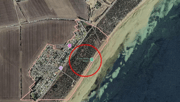Boosting immune system part 2
he immune system has two parts.
There’s the immune function that
you’re born with, called the innate
immune system. The innate immune
system is a general defense
mechanism that protects you from the
time your body is exposed to harmful
germs until the time the second part
of the immune response — the
adaptive immune system — kicks in.
The adaptive immune system
identifies and attacks specific germ
invaders. It also remembers them, in
case of a repeat exposure. This allows
your immune system to mount a more
effective response the second time
around. The process of inoculation
develops when you get sick with a
virus, or it can be developed
intentionally with a vaccine.
Recognizing and destroying
potentially dangerous invaders is only
half of the job. The other part is being
able to turn off that response quickly
once the threat has been destroyed.
Immune responses take a lot of
energy and result in inflammation
— just think of the redness, swelling
or pain you feel when you have a
wound. It’s a sign that your immune
system is hard at work, and it’s usually
a good thing.
I say usually because, unfortunately,
a lifestyle with little physical activity,
unhealthy eating and excess fat create
chronic low-level injuries that leave
the immune system constantly
switched on, similar to having a
chronic low-grade infection. Just think
about a car idling. Leaving it running
all the time would be bad for the car.
The immune system is no different.
Having it continuously on alert is bad
for the body.
Inflammation is part of the body’s
natural defense process designed to
protect against things such as
infections, toxins and trauma — and
to repair any damage that might
occur. The inflammatory response
activates a cascade of immune
reactions that eliminates germs and
repairs injured cells.
For example, if you nick your finger,
you’ll notice fairly quickly that the
area around the wound becomes red
and inflamed. This is a sign that the
immune system has been activated
and is sending immune cells to clean
up the area and knit the skin back
together.
But scientists have also noticed that
a low-grade form of inflammation can
occur on a whole-body (systemic) level.
This type of inflammation can occur in
response to things such as a steady
diet of saturated fats and little fiber, or
continuously high stress levels.
This constant state of low-grade
inflammation loses its initial purpose
of inducing healing and leads instead
to increased cellular and tissue
damage. It becomes a source of
chronic irritation to tissues in the
body, and eventually it becomes a
problem.
So what can we do to keep our
immune systems healthy and strong?
Nutrition
The fuel you put into your body plays
a critical role in how well your
immune system works. But eating
healthy foods and taking vitamins and
other supplements after you’re already
sick doesn’t provide the best response.
Putting fluid in your car after it’s
already overheated and broken down
will prevent further damage to the
engine, but it won’t repair the harm
that’s already been done.
The key is prevention, so you have to
make sure your body has what it needs
to maintain a strong immune system.
A nutrition pattern that’s rich in fruits
and vegetables, such as the
Mediterranean diet, serves up
antioxidants and anti-inflammatory
nutrients, such as beta carotene,
vitamin C, vitamin E and polyphenols,
to promote healthy immune
responses. (See “Eating the
Mediterranean way” page 3.)
Polyphenols are plant-based
micronutrients that control how the
immune system responds.
What we eat also helps the
beneficial bacteria in our guts
communicate with the immune
system and the lungs. This allows for a
more effective response to foreign
invaders and infection, such as with
respiratory viruses.
Any disruption to this delicate
balance of bacteria, whether it’s from
an unhealthy diet or from a
medication such as an antibiotic, can
make you more susceptible to
infections and complications.
Also, and equally if not more
important, the Mediterranean diet has
proved to be one of the most antiinflammatory
diets ever studied.
Our daily habits can contribute to
low-grade chronic inflammation
throughout the body. This ongoing
inflammatory state can eventually lead
to a number of chronic illnesses.
CHRONIC
INFLAMMATION
CAUSES
Poor nutrition
Decreased exercise
Any smoking
Unmanaged stress
Excess spirits (alcohol)
Inadequate sleep
Too much weight
CONSEQUENCES
Alzheimer’s disease
Cancer
Diabetes
Chronic fatigue
Decreased immunity
Sexual dysfunction
Depression
Osteoporosis
Fatty liver disease
Macular degeneration
Heart disease
Understanding Immune





